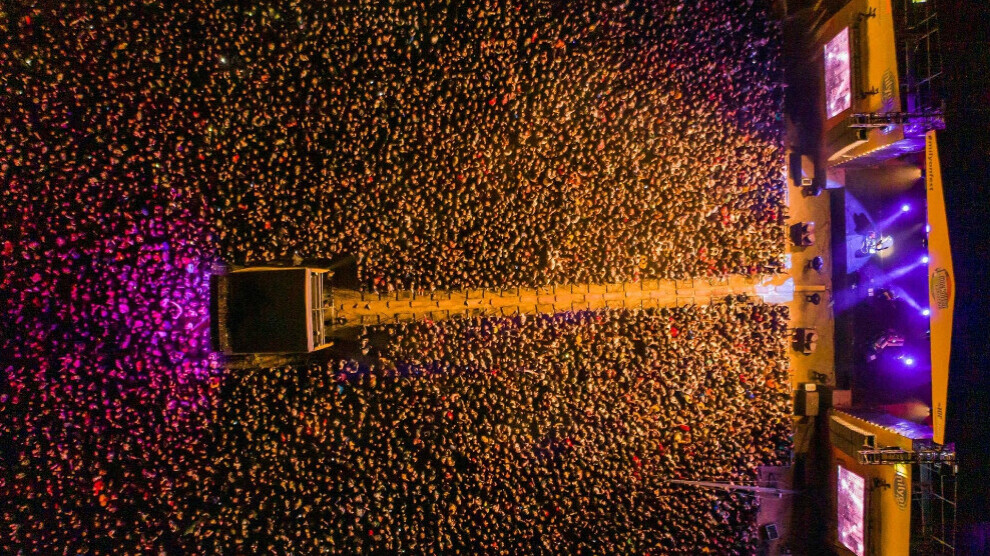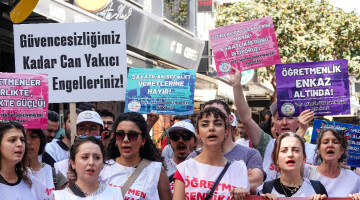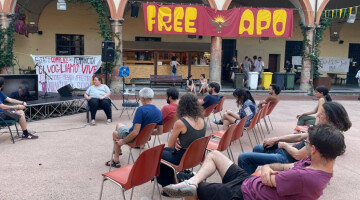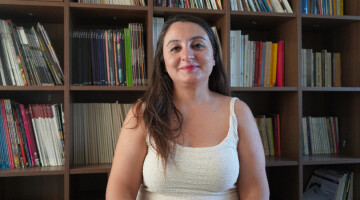In Turkey, concerts and festivals have been banned by the authorities for months. The Peoples' Democratic Party (HDP) sees this practice of prohibition as a suppression of the creative scene in the country by the Islamist-nationalist governing coalition of AKP and MHP. MP Ömer Öcalan, who is also spokesman for his party's commission for language, art and culture, even speaks of a "devastation of the art and cultural landscape" in Turkey, which is spreading more and more.
"The AKP/MHP regime wants to install its own cultural hegemony. That's why it attacks all cultural events and bans them," said Öcalan. This destruction which Ankara has wreaked on the creative scene, especially in the recent past, would have taken on worrying dimensions. The reason is obvious, said Öcalan: "Although political power has seized all opportunities, it has always failed to impose its cultural hegemony on the country. That is why the regime does not shy away from banning any alternative events." This is the way the ruling order is going to limit cultural diversity and enforce its mentality.
The repression in the areas of art and culture is no longer just affecting Kurdish events, which have been banned and restricted for years. Turkish rock festivals or events at universities are also being banned more and more frequently. Most recently, the "Milyon Fest" in the coastal province of Muğla, which was scheduled to take place in the popular resort of Fethiye in early September, was banned.
The Zeytinli Rock Festival organized by the same organizer in Balikesir had previously been banned by the authorities. "So we see that the more recent bans are increasingly affecting those artists who are part of the social opposition," emphasized Ömer Öcalan. But it is also a fact that such an extension of the bans was only possible because of the years of silence of this social opposition, according to the politician.
While the authorities have been citing "maintenance of internal security" as a reason for banning Kurdish events for years, the political leadership in Ankara has added new arguments to its practice of oppression within the cultural landscape. "Health protection", "maintenance of public safety", "environmental protection" and even "the will of the people" are now increasingly being used as reasons for bans - for concerts and festivals, but also non-Muslim events such as Marian masses. The bans ordered by the authorities are often based on complaints from Islamist and ultra-conservative groups, parties and even sects. As a rule, they rail against alcohol, drugs and "indecent contacts" between boys and girls, complaining about short skirts or allegedly offensive texts.
"These bans, which are based on a very subjective understanding of security, restrict people's basic rights to an extent that is no longer acceptable," said Öcalan. Because the prohibition or hindrance of cultural events has also led to a polarization of society. "The government is targeting unwelcome artists. The completely politically instrumentalised judiciary also takes part in the lynching campaigns against those who think differently from the cultural sector. As the HDP, we do not accept this way of dealing with the culture of the opposition, especially with regard to the anti-Kurdish ban practice, and we condemn it in the strongest possible terms. We call for protests and appeal to the entire population, artists and cultural workers and the social opposition to raise their voices against this attitude of the AKP."















